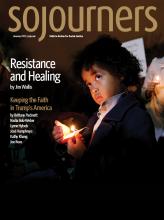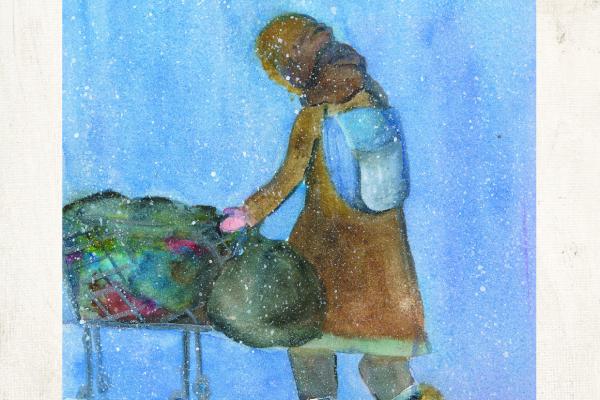IN 1967, I TRAVELED with activist friends from New York to Baltimore to support four people there who poured blood on the 1A files that compelled young men into the military and the massacre in Vietnam. The “Baltimore 4,” as they became known, committed the first of some 100 actions focused on draft boards, the source of cannon fodder in the ever-escalating wars in Indochina. It was during one of these trips that I met Willa Bickham and her husband, Brendan Walsh. Our friendship has been rich, varied, invaluable.
In The Long Loneliness in Baltimore, Walsh and Bickham tell of their nearing 50 years serving the people of Baltimore as the Viva House Catholic Worker. It is a story that needs telling, especially now in this country that is profoundly ruptured by economic and racial conflict.
Try as the politicians and the press might, it is impossible to disengage economics from race. Bickham and Walsh know this intimately, living in the midst of an impoverished black neighborhood. They have experienced drugs, murders, robberies, and destruction right outside their front doors. The alley that runs beside their home, thanks to their creativity, is marked with memorials to men and boys shot and killed there. Repeatedly, after almost every major killing, Walsh has told the press what has become crystal clear to him: that in Baltimore City (as in too many cities), selling drugs is the only job that exists for all-too-many people of color.
In the garden outside Viva House is the Hope Stone. In Bickham’s script, it quotes Martin Luther King Jr.: “We will hew out of the mountain of despair a stone of hope.” That is the invitation to all who come to Viva House for whatever reason, to meet whatever need. Each is sure to receive respectful and caring human interaction, food, fellowship, help with bills, a place to escape the cold or heat or rain, a place of justice and peace.
Read the Full Article

